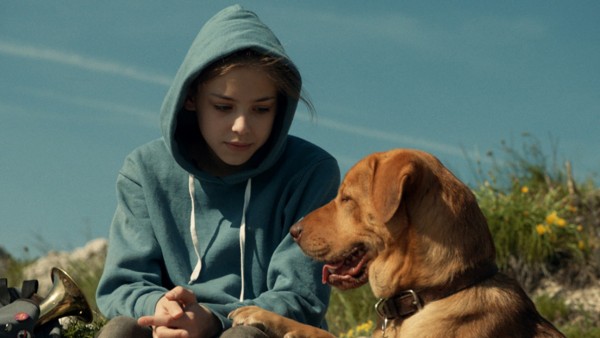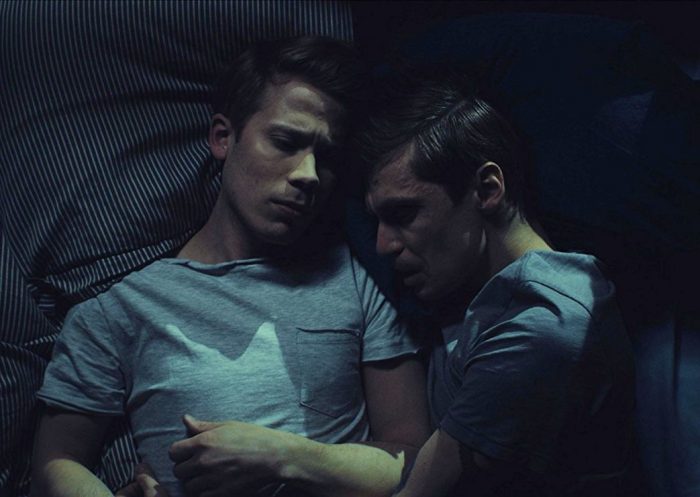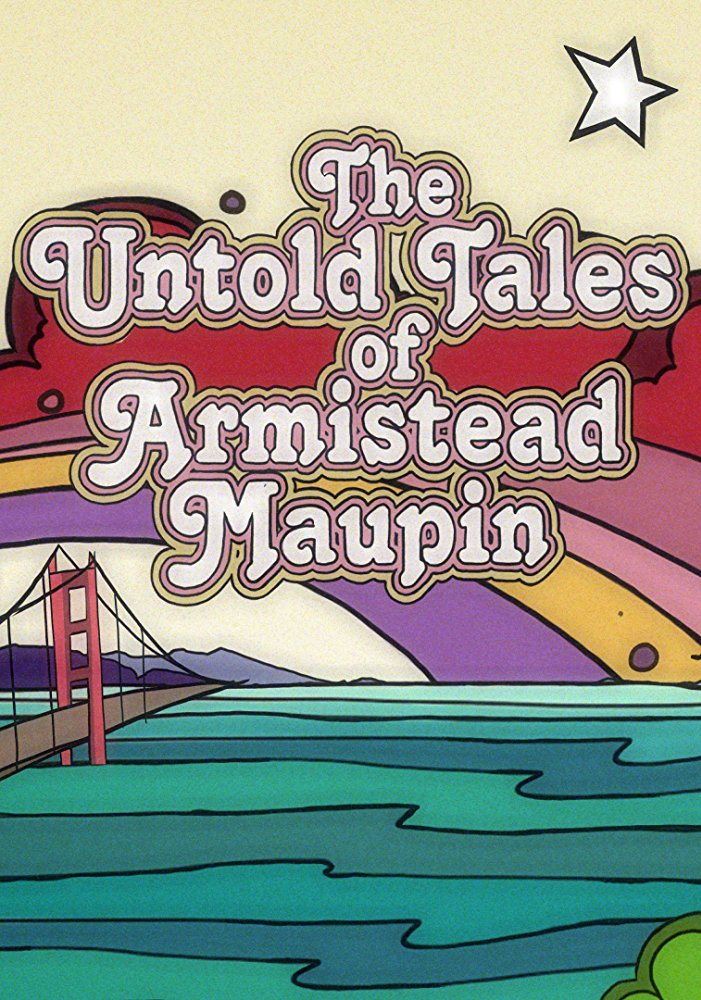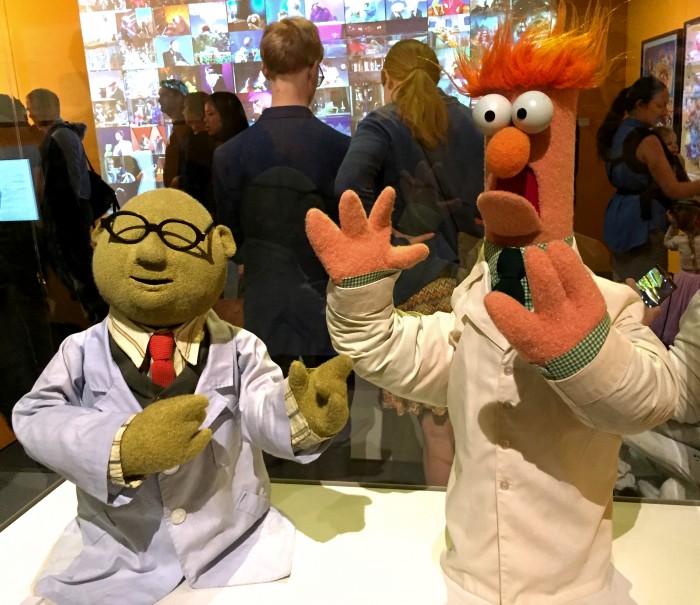There are many aspects of life in which we have no frame of reference beyond how they directly apply to us. What happens to our garbage, for instance. Or behind the scenes at a restaurant or bar. In Kornél Mundruczó’s White God (Fehér isten) we see the events in the lives of abandoned animals, re-created and enacted in painstaking and sometimes painful detail.
The film stars Zsófia Psotta as Lili, a young preteen who comes to stay with her estranged father Dániel (Sándor Zsótér) when her mother goes on a business trip. There’s an immediate disagreement over what to do with her dog Hagen, who Dániel clearly doesn’t want in the house from the get go. A neighbor takes issue with the dog as well and lodges a complaint to the local authorities, who insist on payment of an animal fee in order for the dog to stay in the apartment. As a result, Dániel gets fed up and throws Hagen out in the street.
Part of the brilliance of White God lies in the comparison between Lili and Hagen’s stories. Once they are split up, we see Lili struggling to define herself as a soon-to-be young adult, stumbling through awkward social situations with which she has never had experience when all she wants to do is find her dog. Meanwhile, Hagen struggles with more primal needs – finding food, avoiding being killed by cars and defending himself from those who are ready to take advantage. The purpose of placing the stories side by side only fully reveals itself toward the end of the film. The exploitation of a defenseless animal and the coming-of-age of a young girl have more similarities than is originally apparent, both of whom are exposed to a world that is harsher and more dangerous than they had realized before. When the stories finally collide once again, they inspire a tender moment that hits quite the nerve.
The film is just as technically impressive as it is emotionally satisfying. The training required to make an animal pull such a strong emotional weight was undoubtedly a very difficult feat, all the more impressive considering Mundruczó utilizes hundreds of dogs who had no prior experience on screen. This is definitely a film that uses them to their full capacity, from strutting the sidewalks with the restraint and control of a human being, to all-out chase scenes through the streets involving multiple dogs. The choreography of it all is so startlingly impressive that it almost takes you out of the moment in wondering how such feats were achieved.
There’s certainly moments in which it’s necessary to suspend one’s disbelief. However, when the narrative gets more and more outrageous, the build-up is gradual enough that even such a thing as an organized army of dogs seems fully justified and realistic. This is because the filmmakers take the unorthodox approach of treating the dogs as actual characters, with motivation and emotion just as strong as the humans in the story. In some cases, even stronger. It’s a refreshing and largely effective method, one that falls nicely in line with the message of the film.
White God doesn’t patronize its audience or its characters. The film treats every element of the story with the same weight, somehow without coming off as insincere or preachy. We take real invested sympathy in seeing Hagen struggle just as much as seeing Lili stumble her way into adulthood, not because we take pity on an animal, but because they are both living beings that deserve love and respect. It’s a difficult message to pull off, but White God does so with ease.





















